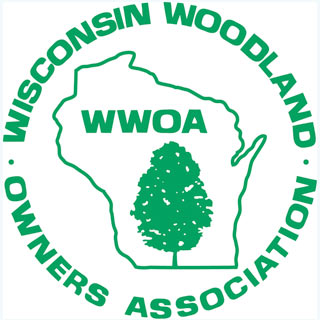News
Message From Billerud
Message From Billerud March 21, 2024 I would like to take a moment to inform you of an important development within our company. Today, Billerud announced that it has reached terms with the Capital Recovery Group, LLC (CRG, LLC) for the sale of the idled Wisconsin Rapids Mill and related assets. This decision follows a thorough exploration of viable and sustainable alternatives for the mill since its idling in July 2020.
DNR Encourages Property Owners To Make Spongy Moth Treatment Plans Early
MADISON, Wis. – The Wisconsin Department of Natural Resources (DNR) encourages property owners to examine their trees for spongy moth egg masses and determine whether control measures are needed this spring.
WWOA Testimony at SB 999 Public Hearing
* Please note that information following SB999/AB1093 will be posted under News, Government Affairs going forward. President Don Hoffman is holding WWOA’s testimony and executive director, Nancy Bozek, is holding the letters of more than 50 members that were sent to their legislators, the bill’s authors, and/or Senate Committee members. WWOA’s testimony and a copy of your letters were presented to the Senate Committee members.
Public Hearing Announced for SB 999 – MFL & Motorized Vehicles
Your Voice is Needed! Public Hearing Scheduled for Wed, February 14 at 1 pm on Open Managed Forest Law Lands & Motorized Vehicles Yesterday, February 8, 2024, WWOA sent you a message about WI Senate Bill 999 with proposed changes to the Managed Forest Law program to require access for motorized vehicles on Open MFL lands.
Proposed Change to the Managed Forest Law Program
Your Voice is Needed – Open Managed Forest Law Lands & Motorized Vehicles Yesterday, February 7, 2024, Wisconsin Senate Bill 999, was read into the record for the first time and referred to the Committee on Financial Institutions and Sporting Heritage.
Forest Owners Tax Tips for 2023
The 2023 Forest Owners Tax Tips are now available to assist you in completing your timber tax forms. Be sure to share this information with your accountant too!
September 7 – WI DNR Cone Collection Training
RED PINE IN WISCONSIN: A HISTORY AND A FUTURE Contact: Richard Nesslar, Richard.Nesslar@wisconsin.gov Jeremiah Auer, Jeremiah.Auer@wisconsin.gov Roger Bohringer, Roger.Bohringer@wisconsin.gov There are over 100 species and many varieties of the genus Pinus around the world. In Wisconsin, the eastern white pine, red or “Norway” pine and jack pine are the only native and most plentiful pine species.
WDNR Drought Resource Webpage
The Wisconsin Department of Natural Resources (DNR) today announced the recent launch of a Drought Resource webpage as a new public source for information related to the drought conditions experienced by 82% of the state. The new webpage gives viewers access to current drought conditions across Wisconsin, helpful resources from various DNR programs and other state and national resources regarding drought conditions.
WDNR Fall Hunting Outlook
The Wisconsin Department of Natural Resources (DNR) today released the 2023 fall forecast series detailing the coming seasons’ hunting outlook for a variety of popular game species. These forecasts outline what hunters and trappers across the state can expect this year while pursuing their favorite game species. Forecasts also include helpful reminders about public land access opportunities, game registration requirements and season dates.
Pallet Fire in Waushara County
830-Acre Fire In Waushara County 99% Contained The 830-acre Pallet Fire in Waushara County is now 99% contained. / Photo Credit: Wisconsin DNR COLOMA, Wis. – The Wisconsin Department of Natural Resources (DNR) fire crews and local agencies are on the scene of the now roughly 830-acre Pallet Fire in Waushara County, southeast of Coloma. The fire is 99% contained. Three primary structures and 17 secondary structures have been lost.
